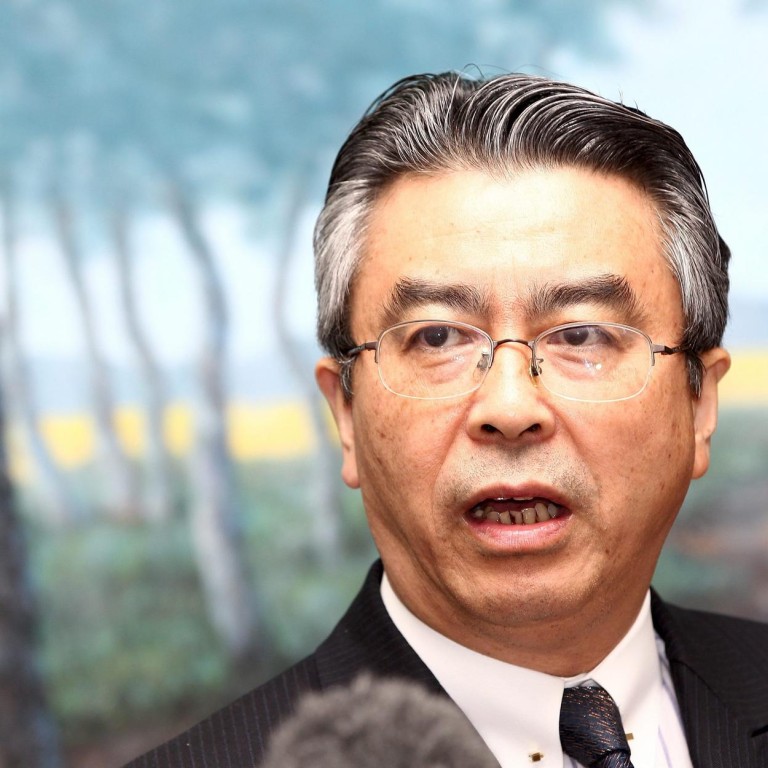
China and Japan to hold talks over North Korean nuclear test
Japanese diplomat will arrive for discussions on shared concern over North Korea even as tensions mount over disputed islands
A senior Japanese diplomat will visit Beijing next week for talks on the nuclear test carried out by North Korea on Tuesday.
Shinsuke Sugiyama, director general of the Japanese Ministry of Foreign Affairs' Asian and Oceanian affairs bureau, will arrive with tensions between Beijing and Tokyo still running high over a territorial dispute in the East China Sea.
He will be the first Japanese official to visit China since Tokyo alleged last week that People's Liberation Army Navy frigates had locked fire-control radar on a Japanese military helicopter and destroyer in separate incidents last month.
The visit of Sugiyama shows that the nations still have some communication channels when their relations are tense
Sugiyama spoke by telephone with Wu Dawei, China's special representative for Korean Peninsula affairs, on Tuesday, with both sides vowing to step up co-operation to ensure the removal of nuclear weapons from the peninsula, Kyodo News reported. Wu said China had made diplomatic efforts to stop Pyongyang from conducting the nuclear test "until the last second".
Sino-Japanese ties have deteriorated since September, when the Japanese government announced it was buying three of the five uninhabited Diaoyu Islands - known as the Senkakus in Japan. Tensions escalated after last week's allegations, with Beijing saying they were fabricated by Tokyo to spread the "China threat" theory.
But both countries condemned Pyongyang's nuclear test, with Foreign Minister Yang Jiechi summoning North Korean ambassador Ji Jae-ryong in Beijing and Japan mulling unilateral sanctions against North Korea.
Yang also had telephone conversations with US Secretary of State John Kerry and his South Korean counterpart Kim Sung-hwan on the issue.
Analysts said the nuclear test provided common ground of co-operation between Beijing and Tokyo, but tensions over the disputed islands would remain high.
"The visit of Sugiyama shows that the nations still have some communication channels when their relations are tense," said Professor Lian Degui , of the Shanghai Institutes for International Studies. "China, Japan and the US have common interests on the Korean Peninsula, where they can co-operate."
Meanwhile, Professor Da Zhigang , of the Heilongjiang Academy of Social Sciences, said the international community's attention had been diverted from the territorial dispute to the nuclear test, but added that China would not join hands with Tokyo to launch bilateral measures to exert pressure on Pyongyang.
Chinese state media reports about PLA drills during the Lunar New Year holiday emphasised the tensions between Beijing and Tokyo. China has also sent maritime surveillance vessels to waters around the disputed islands over the past few days.
Japan's Ministry of Defence said yesterday that three Chinese warships had sailed through international waters between Okinawa and Mayakojima after training in the Western Pacific.
Lian said he expected Sugiyama would discuss the radar allegations next week, and the two countries would seek ways to create the environment for a bilateral summit meeting, which Tokyo suggested last month.
"Japan will not abandon the plan to purchase the islands, and China will not stop patrolling around," Lian said. "But the two sides will keep talking to each other to see if they can reach a middle ground."

